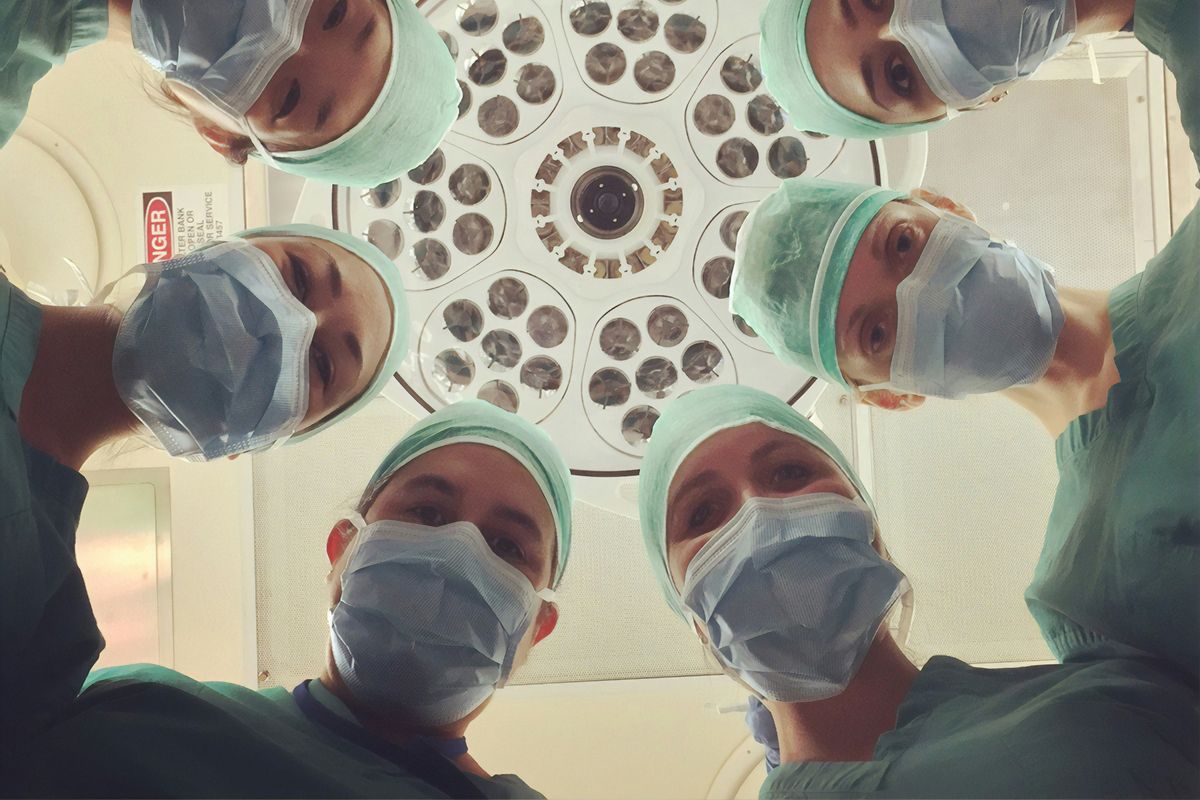12 real scientific facts that sound completely made up, but aren't
Did you know that placebos work even when people know it's a placebo?

Real life is far stranger than fiction.
And now we have the proof.
A recent thread on r/AskReddit posed the question: "What sounds like pseudoscience, but actually isn't?"
The answers were far more interesting than all the science classes I ever took. Combined.
Let's take a look at some of the strangest scientific facts the good people of the Internet could come up with.
1. Phantom limbs & mirror therapy
Most people have heard of phantom limbs and phantom limb pain, the phenomenon where someone who's lost a limb can still feel pain or other sensations where the missing appendage should be.
But the connection between the brain and the missing limb gets even wilder the more you dig into it.
Did you know that a common treatment for phantom limb pain is something called "mirror" therapy, where a therapist will use a series of mirrors to make it look like the missing limb is still there? This tricks the brain and eases discomfort over time.
Sounds like psuedoscience, but can be extraordinarily effective!
Tip of the cap to u/MonSoleil937 for this one.
2. Ear crystals going haywire

User u/shinjithegale nominates "Benign Paroxysmal Positional Vertigo", or BPPV, a common type of vertigo and dizziness that usually occurs in people over the age of 60.
The weird part? The vertigo is caused by small calcium crystals inside the ear coming loose and flowing into the inner ear.
"Your magical ear crystals are out of sync" definitely sounds fake but is 100% a real, treatable condition.
3. Redheads need more anesthesia than everyone else
This one comes from u/explorerdoraaaaaa — and it can't possibly be true, right?
Wrong.
Red-haired people, who make up only about 2% of the population, may process pain differently from the rest of us and have been shown to often be more tolerant to local anesthetics — they may need up to a 20% stronger dose!
They might also be more sensitive to opioids and less sensitive to shots, needles, and electric shocks.
4. Speaking in a different language can unlock an alternate personality
Where are our personalities stored? In our brains? Our souls?
Despite sounding completely implausible, maybe neither!
If you learn a new language or grow up speaking multiple languages, your personality make be markedly different depending on which language you're speaking.
One study gave people who grew up in Spanish/English bilingual households a personality test in each language and found that their values and personality traits were dramatically different in the respective results.
5. Platypuses exist

That's it. That's the fact, courtesy of u/Steeze-Schralper6968.
The list of true but baffling facts about platypuses goes on and on.
For starters, they're a mammal with a beak that lays eggs, sweats milk, and shoots poison.
If you read about it in a SciFi novel you'd struggle to suspend your disbelief.
6. Duct tape can cure warts for some reason
Most common warts are harmless, but we still don't like having them. That said, because they're not hurting anyone people are hesitant to try invasive or expensive procedures to remove them.
Enter Duct Tape Occlusion Therapy, which is a real thing. Simply apply duct tape to the wart, remove, clean the area, and repeat every couple of days.
Weirdly duct tape therapy isn't just ripping the warts off. There's some evidence that the adhesive used on the tape may cause an immune response in the skin that causes the warts to clear up.
7. The world is brighter for blue-eyed people — and they see better at night

I've always wondered why I can barely walk outside on a cloudy day without sunglasses, and now I know!
8. Eye-Movement Desensitization and Reprocessing
EMDR therapy, nominated in the thread by u/taurussy, sounds like something you'd see a stage hypnotist perform on tipsy audience members.
In reality, it's a powerful therapy for processing trauma.
EMDR involves a patient processing traumatic memories while performing therapist-directed eye movements or otherwise tracking an external stimulus, like a light or an audio track.
The theory is that the process can form new connections between blocked-off and painful memories and more adaptive memories or information, which allows for healing.
9. The placebo effect & open-label placebos
Most of us know about the placebo effect, but it's still almost too unbelievable to be real.
(As a refresher, an example of the placebo effect might be someone with a cold feeling better after taking a "sugar pill" with no medicine in it that they were told would cure them.)
But here's something wild you probably didn't know about placebos:
They can work just as well even when people know they're taking a placebo!
The things our brains can "trick" us into doing are truly incomprehensible.
10. Teratomas
Teratomas sound more like nightmare-fuel than psuedoscience, but they're still worth a mention from u/flugualbinder.
Teratomas are rare kinds of tumors that can grow and contain hair, bones, muscle, and even teeth.
They are real, and you will look up photos of them at your own peril.
11. Pain is all in your head — kind of
Pain is real, and it's valuable information for your body that something is wrong.
But scientists have learned a lot about it, specifically when studying chronic pain. And we know now that our emotions, our beliefs, and other aspects of what happens in our brains plays a big role in how we experience pain.
One study found that Pain Reprocessing Therapy (PRT), basically training the brain to "unlearn" pain, was more effective than a placebo and normal pain management care.
It gives credence to something that sounds completely unbelievable: In some cases, you can "mind over matter" your way to hurting less.
12. Grass screams when you cut it
Thank you to u/arealcabbage for this horrifying image:
"The grass screams distress signals to the next lawn over when you're mowing."
Believe it or not, that's true — in a sense. That freshly-cut grass smell we all like? It's actually a distress signal designed to warn other plant-life in the area of danger.
It's a stretch to say that your lawn feels pain, but it does have some survival instincts. Now if we could only say for sure why humans love the smell so much!



 These matching bunny ears though.
These matching bunny ears though.  Many adult twins regret that their names are so closely linked together.
Many adult twins regret that their names are so closely linked together.  American portion sizes are colossal.Canva Photos
American portion sizes are colossal.Canva Photos American public restrooms aren't very private.Canva Photos
American public restrooms aren't very private.Canva Photos Cashiers in America stand all shift long.Canva Photos
Cashiers in America stand all shift long.Canva Photos America loves the Pledge of Allegiance.Canva Photos.
America loves the Pledge of Allegiance.Canva Photos. Cosmetic surgeries on pets are...a choice.Canva Photos.
Cosmetic surgeries on pets are...a choice.Canva Photos. America loves extra sugar in savory foods.Canva Photos.
America loves extra sugar in savory foods.Canva Photos. 9 months is a very long time to be aboard a boat, even a giant cruise ship. Photo by
9 months is a very long time to be aboard a boat, even a giant cruise ship. Photo by  Pro tip: Don't ask the band on board to play "My Heart Will Go On" by Celine Dion
Pro tip: Don't ask the band on board to play "My Heart Will Go On" by Celine Dion  Earth Wind And Fire GIF by Death Wish Coffee
Earth Wind And Fire GIF by Death Wish Coffee  September 21 GIF by Earth, Wind & Fire
September 21 GIF by Earth, Wind & Fire  Many cockatiels love to dance.
Many cockatiels love to dance.  A little rgirl reading to her dad.via
A little rgirl reading to her dad.via